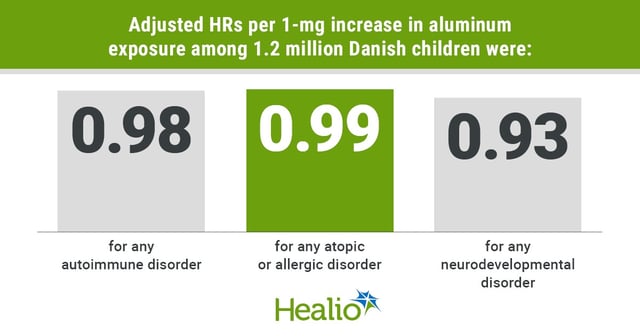Overview
- The Annals of Internal Medicine analysis followed 1.2 million children born between 1997 and 2018 through age five, exploiting natural variations in aluminum adjuvant doses caused by schedule changes.
- No association emerged between cumulative aluminum exposure and autism spectrum disorder, ADHD, asthma or autoimmune diseases, and hazard ratios even suggested modest risk reductions for ASD and ADHD per additional milligram.
- Confidence intervals rule out small to moderate risk increases for most of the 50 neurodevelopmental, allergic and autoimmune outcomes, though very rare conditions remain too few to dismiss minimal risk entirely.
- Investigators adjusted for maternal health, smoking during pregnancy, parity and socioeconomic status to minimize bias and strengthen the study’s quasi-experimental design.
- These results provide the most definitive evidence yet against claims linking aluminum adjuvants to chronic childhood illnesses and supply policymakers and clinicians with robust data to address vaccine hesitancy.


